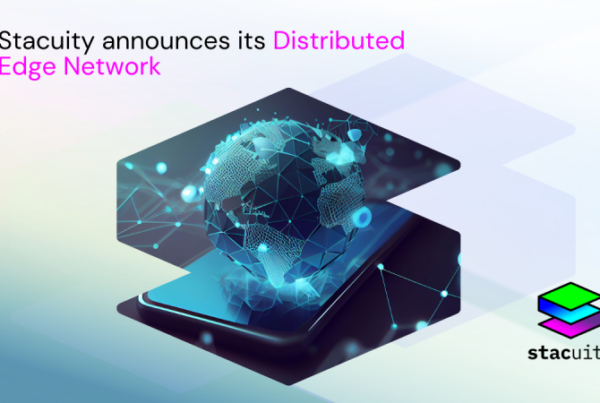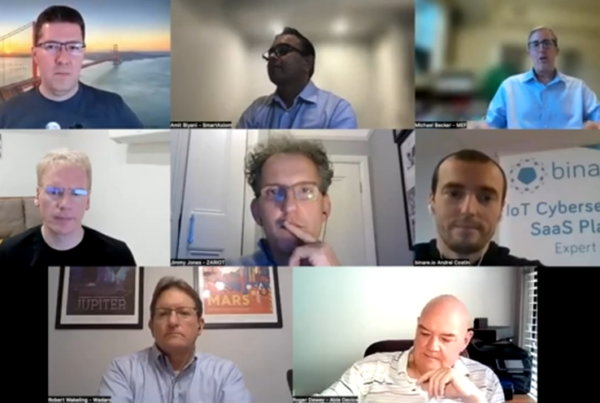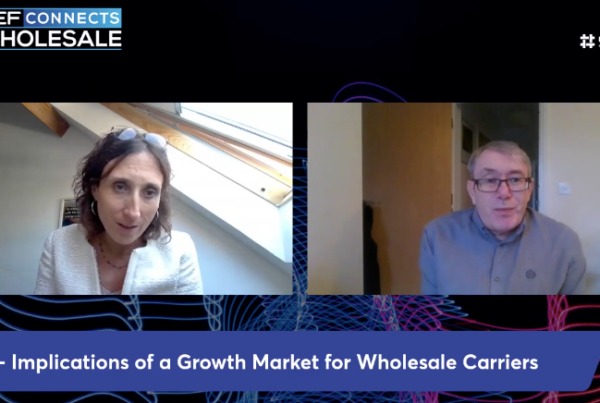 Last month’s CES in Las Vegas saw many of the large automotive firms showcase their vision of the connected car.
Last month’s CES in Las Vegas saw many of the large automotive firms showcase their vision of the connected car.
A year before at CES 2015, Mark Fields, CEO of Ford, said: “We’re thinking of ourselves as a mobility company and not only a car and truck company. We want to be viewed as being part of this community.”
And research by Accenture says 39 per cent of the world’s drivers value connected tech higher than anything else when buying a new car.
So who owns this new customer relationship and which services will sit well behind the wheel of the connected car? We asked MEF members and the wider mobile community for their thoughts.
Jonathan Hewett
Head of Strategy
Octo Telematics
Jonathan Hewett, Head of Strategy, Octo Telematics
The car is rapidly evolving from a simple mode of transport to a personalised information hub: with the connected-car market currently growing at a five-year compound annual growth rate of 45 per cent, BI Intelligence estimates there will be 220 million connected cars on the road globally by 2020.
With the proliferation of connected cars, computers will increasingly have the ability to control every function of our vehicles. This is a hugely exciting opportunity for car owners – in terms of insurance alone, the ability to collate and analyse real-time driver and vehicle data is enabling some of the world’s leading insurers to reduce connected users’ insurance premiums by up to 30 per cent.
The need to protect this data in the shift to connected, driverless and autonomous cars is implicit and those behind the connected car movement must operate to the highest levels of system security standards. A user-focused, security-first approach to every layer of the connected car will be essential.
Dylan Stuart
Partner
Lippincott
Dylan Stuart, Partner, Lippincott
Car makers will want to maximise the extent to which they can maintain brand differentiation in the ‘digital’ part of the mobility experience – after all, that’s increasingly the bit that matters over seductive sheet metal and handling prowess.
The deciding factor will be whether people accept the digital part of the car being proprietary, or if they want an ecosystem driven by OS on their phone, in their homes and car.
In the future there will be many opportunities for service providers to enable the ‘mobility’ paradigm, but the key will be creating value beyond the dumb pipe. As everything in our lives becomes more connected it could also become much more complex. The opportunity for service providers and car makers is to help reduce complexity and simplify the consumer’s experience so it ‘just works’.
Grant Courville
Product Management
QNX
Grant Courville, Senior Director of Product Management, QNX Software Systems
Autonomous vehicles are moving quickly from theory to reality. We are seeing connected cars already on the market that incorporate automated features such as adaptive cruise control, automatic parking, and traffic jam assist.
A host of new technologies showcased at CES in January, by companies such as QNX Software Systems, will help accelerate the industry transformation towards fully connected and automated driving, including advanced driver assistance systems (ADAS), vehicle-to-vehicle (V2V) communications, and vehicle-to-infrastructure (V2I) communications.
Just like mobile devices, these technologies rely heavily on software. It is critical that the operating system (OS) providing the foundation for this software is highly reliable as well as flexible, enabling manufacturers to keep pace with fast-evolving technologies, from sensors to smartphones. What’s more, connected vehicles must use OS technology with proven safety and security credentials, providing a trusted runtime environment, with support for techniques such as secure boot, trusted key stores and encryption. The need for security cannot be underestimated; no one wants a malicious party taking control of their vehicle.
Jens Nielsen
Head of Nordics & UK
NetBooster
Jens Nielsen, Head of Nordics & UK, NetBooster
The Institution of Mechanical Engineers has predicted that all UK cars could be fully driverless by 2050. With the first driverless cars being tested in London this summer, it shows the impact that digital disruption is already having on the automotive industry.
The new models are set to revolutionise the automotive world, changing our perception of cars and the way we transport ourselves. In addition, a plethora of new opportunities will be opened up for manufacturers, giving them the chance to interact with and impact other sectors. Through the use of location-based marketing and data collection mechanisms incorporated into the new car models, many related industries – such as music and technology – will have the opportunity to collect information based on users’ locations, preferences and behaviours – and to action that data.
Car manufacturers may be among the first companies to experience truly transformational disruption (due to driverless) – but they are unlikely to be the last.
Paul Sykes
UK MD
Audatex
Paul Sykes, UK MD, Audatex
Smart devices now form an intrinsic part of our day to day lives, especially in the mobile-mad UK. Recent figures from Ofcom revealed that 66 per cent of British adults now own a smartphone, one of the highest figures of any country in the world. Businesses are already using technology to help make their operations more streamlined and profitable.
The next stage in this evolution, I believe, will be the development of app technology – a vital tool for insurers looking to improve engagement with policyholders. This is even more pertinent with the momentum we are seeing with connected cars – set to transform the automotive market.
I predict that we will begin to see more apps and services that link car owners with brands, opening up a wealth of new opportunities. Big Data will be used in a way that actually benefits the user directly, making consumers more willing to share data, in turn allowing the opportunity for further technologies to be developed.
Lesley Slater
Business Development Director
LeasePlan
Lesley Slater, Business Development Director, LeasePlan
Connected cars present an interesting ethical dilemma when it comes to ownership of data, especially when cars are leased. To avoid any confusion between the lessor and lessee, there needs to be a clear distinction between vehicle data and driver data from the outset of the agreement.
For example, as the vehicle owner, the lessor has the right to hold maintenance, engine and overall mileage data. The lessor doesn’t have the right to any information that would be likely to impact or identify the driver, their behaviour or where they are travelling.
Collecting data of this nature would require prior written permission from the lessee. A line needs to be drawn between the data that is essential for the maintenance and evaluation of the car, and data that is personal to the driver. The rise of connected cars makes this distinction more important than ever.




